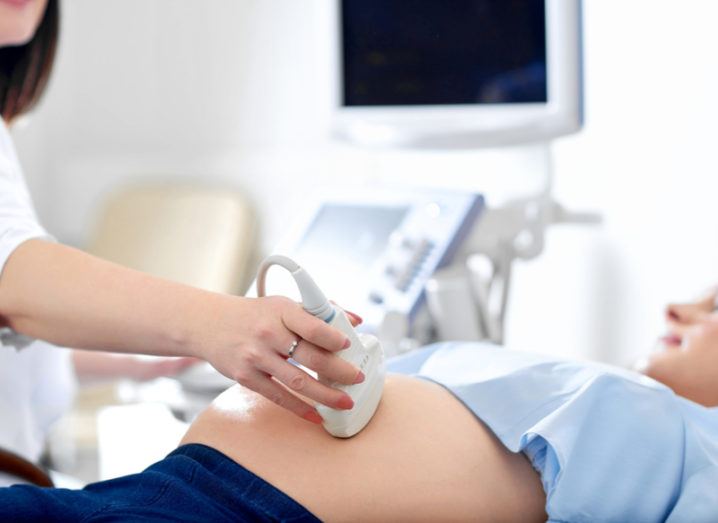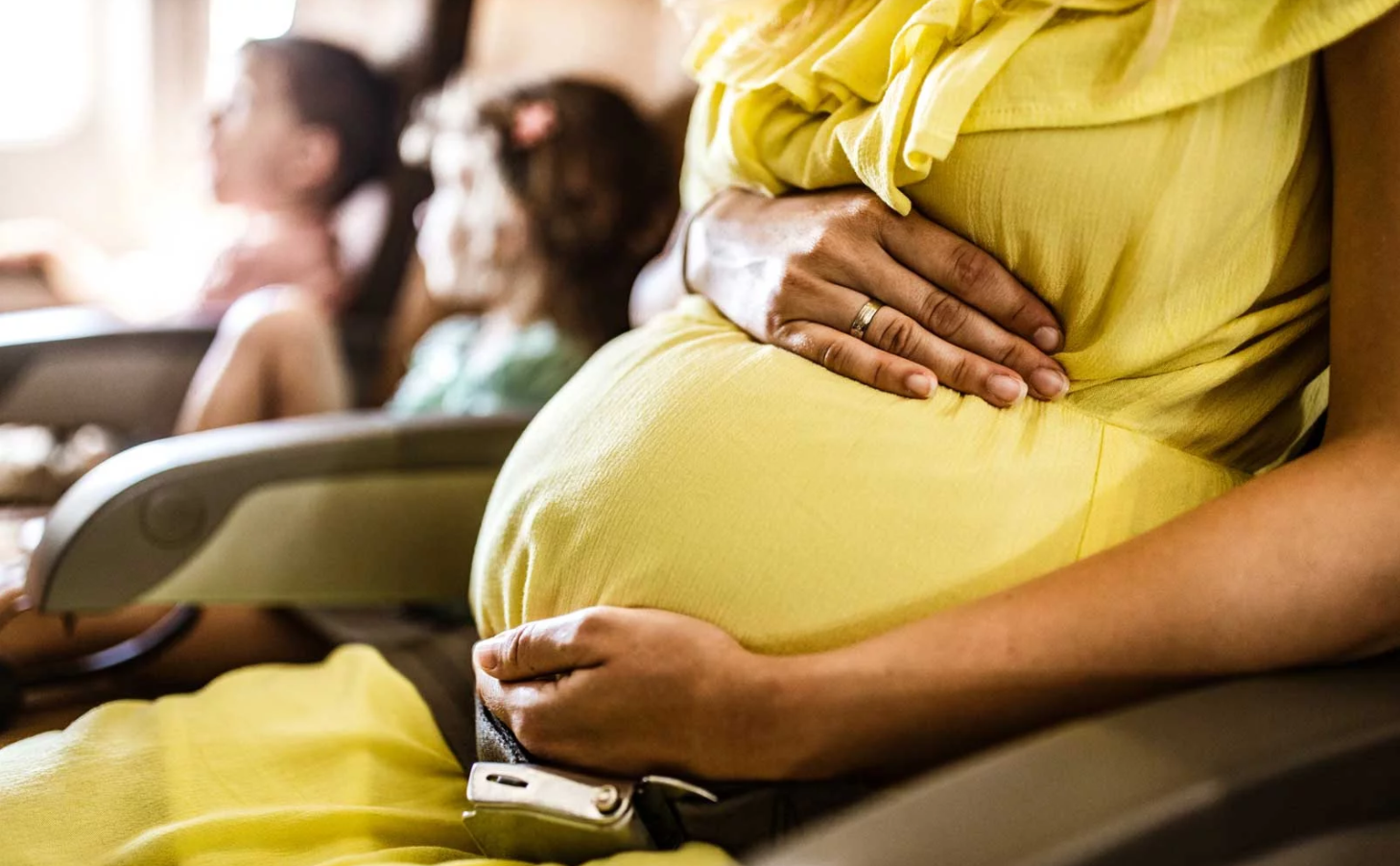Subscribe to our Telegram channel for our latest stories and breaking news.
Cover image used for illustration purposes only.
When you’re expecting, there are probably many questions on your mind, especially if it’s your first pregnancy
From what foods to avoid to what warning signs to look out for, there are lots of important things to keep in mind when you’re pregnant.
Whatever you’re concerned about, it’s important to always speak to your doctor. There’s no such thing as a stupid question, so ask away and make sure you’re fully informed.

Meet these OBGYNs from Sunway Medical Centre Velocity (Cheras, Kuala Lumpur)

They answer questions about pregnancy frequently asked by expecting Malaysian mothers. Here’s what they said:
1. Is it safe to have sex in the third trimester?
“Sex in pregnancy is generally safe if you are having pregnancy without complications. Sex is safe till the day of delivery.
“However, you should not have sex with your partner if you have placenta praevia (the placenta is partially or fully covering the opening of the cervix), if your water breaks (as you might introduce infection to the birth canal), or if you are at high risk of premature labour.”
– Dr. Ashley Chung Soo Bee, Fertility Specialist, Consultant Obstetrician & Gynaecologist
2. Is doing many ultrasound scans harmful to me and my unborn baby?

“Ultrasounds are high frequency sound waves that are used throughout pregnancy to evaluate baby’s growth and wellbeing, amniotic fluid around the baby, and placenta during pregnancy. There is no radiation transmitted to the baby. Therefore, ultrasounds are considered completely safe for you and your unborn baby without any side effects.”
– Dr. Ashley Chung Soo Bee, Fertility Specialist, Consultant Obstetrician & Gynaecologist
3. Can I fly during pregnancy?
“In general, travelling during pregnancy is safe and you can travel by air. The second trimester is the best time to travel as it is the most comfortable and safest period. This is because nausea and vomiting are likely to have settled and pregnancy is much more stable.
“A condition called deep vein thrombosis (DVT), which means blood clot in the leg, is a risk that can occur. To reduce the risk, do drink plenty of water, walk regularly around the cabin, frequently stretch or move your legs, and wear compression stockings.
“Airlines will have restrictions for pregnant travellers, so please check with your airline before you travel.”
– Dr Farah Leong Rahman, Fertility Specialist, Consultant Obstetrician & Gynaecologist
4. Is there any food I should avoid during pregnancy?
“Maintaining a healthy diet during your pregnancy will help your baby to develop and grow, and will keep you fit and well. It is important to get the right balance of nutrients that you and your baby need. This means plenty of fruits and vegetables, and cutting down on food that is high in saturated fat and sugar.
“Some of the food you should avoid are soft cheeses such as camembert, blue cheese, and brie. Make sure the meat or shellfish you are consuming is thoroughly cooked. This is because these foods may contain bacteria that can be harmful to your baby.
“You are also advised not to consume alcohol during pregnancy. You can still take caffeinated beverages such as coffee and tea, but in limited amounts of about one to two cups a day.”
– Dr Farah Leong Rahman, Fertility Specialist, Consultant Obstetrician & Gynaecologist
5. How should I sleep during pregnancy?

“Generally, any position is safe during pregnancy until you reach the third trimester.
“As the baby gets bigger and heavier, you will need to sleep on your side. This is the safest position for your baby as it helps prevent the risk of stillbirth.
“Sleeping on one side with your knees bent will also help reduce the amount of pressure on your womb and help you breathe better, as well as relieve back pain. If you like, you can use pillows under your belly, between your legs, and behind your back.”
– Dr Nor Elyana Noordin, Consultant Obstetrician & Gynaecologist
6. What warning signs should expectant mothers be concerned about? When should I call my doctor or midwife?

Baby movement
“By the third trimester, babies would have established movement and sleep patterns. If you feel your baby does not move as much as usual, sit down in a quiet place and count your baby’s kicks.
“You should count at least 10 movements within two hours. If there are less than 10 kicks or you don’t feel any movement, seek medical attention immediately.”
Contractions
“Braxton Hicks contractions can be felt as early as the second trimester. It may be difficult to tell the difference between these contractions and true contractions.
“Braxton Hicks contractions are usually irregular and seldom cause pain. It varies in length and intensity, and can disappear with walking, changing positions or resting.
“True contractions have a regular pattern that grow closer together, last at least 30 seconds, become longer and stronger, and increase in intensity despite walking, changing positions or resting.
“They often radiate throughout the abdomen and lower back. The abdomen feels hard. If you start experiencing contractions every two to three minutes, or painful contractions with heavy vaginal discharge, seek medical help immediately.”
Heavy bleeding from the vagina or severe abdominal pain
“Bloody vaginal discharge can happen towards the end of pregnancy. This happens when a thick plug of mucus that covers the cervix dislodges. Usually, the bleeding is minimal. If you experience heavy bleeding or bleeding that lasts longer than a day, seek medical attention immediately.”
– Dr Nor Elyana Noordin, Consultant Obstetrician & Gynaecologist
7. What is the Down syndrome screening test all about?
“In the first trimester of pregnancy, between 11 to 14 weeks, a screening test is carried out to look for the risk of Down syndrome as well as two other major chromosomal anomalies in the baby. This is a screening test with 90% accuracy.
“It consists of a detailed ultrasound scan of the baby to measure the nuchal translucency (NT), which is the collection of fluid under the skin behind the baby’s neck, measurement of the crown rump length to accurately date the pregnancy, as well as nasal bone identification and a general anatomy survey of the fetus.
“A maternal blood test is taken for the bhCG and PAPP-A hormones. Together with the maternal demographics, scan findings, and hormonal assays, these are incorporated to provide the risk for the fetus for having Down syndrome, Edwards or Patau syndrome.”
– Dr Janani Sivanathan, Consultant Obstetrician & Gynaecologist and Maternal Fetal Medicine Specialist
8. Is it safe to have a Brazilian during pregnancy?
“If you have had a Brazilian before, then there is no harm to do so in pregnancy. Do let your therapist be aware that you are pregnant as hygiene is crucial.”
– Dr Janani Sivanathan, Consultant Obstetrician & Gynaecologist and Maternal Fetal Medicine Specialist
9. When should I start consuming folic acid and at what dose?

“Start consuming folic acid at a recommended dose of 400 micrograms daily prior to conception and throughout the first 12 weeks of pregnancy. If you found out you are pregnant and have not started on folic acid, do start.
“A dose of 5 miligrams is recommended in women with higher risk of neural tube defects:
– History of child with neural tube defect
– Family history of neural tube defect
– Underlying diabetes mellitus
– Patient on antiepileptic medication
– Obesity
– Malabsorption disorders”
– Dr Wong Yen Shi, Consultant Obstetrician & Gynaecologist
10. Is exercise harmful during pregnancy?

“No, it’s not, and it is important to stay healthy in pregnancy. Exercising will help boost mood, reduce backache and swelling, improve sleep, prevent excessive weight gain and, improve muscle tone and endurance. At least 30 minutes of moderate exercise per day is encouraged.
“Women who haven’t exercised routinely should begin with 15 minutes of continuous exercise three times weekly, increasing to daily 30-minute sessions. Avoid contact sports or high impact activities that may results in joints stress or trauma to tummy.
“Exercise may not be advised in women with short cervix, placenta praevia, persistent vaginal bleeding, at risk of premature labour, or upon your obstetrician’s advice. Speak to your doctor if you are unsure.”
– Dr Wong Yen Shi, Consultant Obstetrician & Gynaecologist
Sunway Medical Centre Velocity (SMCV) is there for you every step of the way throughout your journey from conception to birth
For a closer look at their Women & Children services, watch the heartwarming video below:
From your first appointment to the day you’re discharged with your precious new addition to your family, you can trust in the team of dedicated and experienced Consultant Obstetrician & Gynaecologists, Neonatologists, and Paediatricians at SMCV.
When the time comes to welcome your bundle of joy into the world, you’ll feel safe, at home, and comfortable in SMCV’s spacious and private Delivery Suites.

Image via Sunway Medical Centre Velocity
About to begin your journey to motherhood? We have great news for expecting mums. With SMCV’s Delivery Promo Package 2021, you can enjoy 30% off hospital charges if you deliver your bundle of joy at SMCV.
Click here for more information.

Click here for more information on how you can start your beautiful journey with Sunway Medical Centre Velocity
Sunway Medical Centre Velocity is located at Lingkaran SV, Sunway Velocity (Cheras, Kuala Lumpur). For enquiries, please contact +603 9772 9191 or email [email protected].



